Treasury Secretary Henry M. Paulson Jr. was not warmly received at today’s bailout hearing when he stared down an angry and disenchanted Senate Banking Committee. Federal Reserve chairman, Ben S. Bernanke, who appeared with Mr. Paulson, warned that unless Congress gave Mr. Paulson $700 billion that “inaction could lead to a recession.” Oooh, they said the “R” word….
wall street

Wall Street Is Dead
Wall Street is dead. According to its Journal, it died last night when the Federal Reserve agreed to convert Goldman Sachs and Morgan Stanley, the last remaining mega brokerages on Wall Street, into bank-holding companies. The Wall Street that was, “a coterie of independent brokerage firms that buy and sell securities, advise clients and are less regulated than old-fashioned banks,” is no more. In exchange for access to more Federal loan money, and not having have to mark its assets at market value, the two companies will be subject to tighter capital requirements and more government regulation and oversight about how they do their business. This will blunt profits, but that seems in order considering the run racked by so much reckless profiteering, for so long.

What Will The Largest Government Bailout Of Private Industry In US History Look Like?
A bailout of some kind is coming, but no one seems to know what it will look like and who it will help. The Wall Street Journal says that Senate Banking Committee Chairman Christopher Dodd of Connecticut has some ideas that might not go over too well with the Treasury Department.
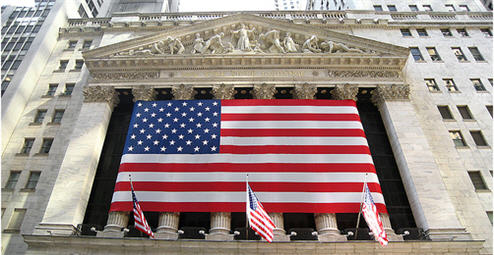
10 Skills To Have In The Post-Financial Apocalypse
It’s the end of the world as we know it, but that doesn’t mean you should give up on yourself. Here are 10 skills to have in our brave new world…
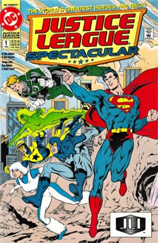
New Super Agency Proposed To Buy Up All The Very Bad Loans And Save Our Financial System
Markets rallied in late trading in the biggest gain in six years, emboldened by news that Washington wants to create a new agency that will buy up ALL the bad loans on these financial companies’ books. The initiative would be an attempt to fashion a holistic solution instead of bailing out each individual bank as it fails. This would cost many more billions of dollars and require Congressional approval. In order for all those CongressCritters to keep their jobs, there is talk that the deal would be packaged with another stimulus package perhaps including more rebates, along with food stamps and unemployment benefits.
How Wall Street Lied To Its Computers
The people who ran the financial firms chose to program their risk-management systems with over-optimistic assumptions and to feed them oversimplified data.

Nobody Gave A Crap About The FDIC Until Fairly Recently
Spend a little time looking at Google trends and you’ll notice that no one really gave a crap about the FDIC until fairly recently.

Morgan Stanley Ponders Wachovia Merger
The Morgan Stanley investment bank is considering merging with the Wachovia commercial bank. The point is for the investment bank to have lots of capital on hand in the form of consumers’ deposits. This would return the two back to their structure during the Great Depression, when the two split. Uh, oh, there’s the D word, and we’re not even officially allowed to say the R word yet! Let’s just say Wall Street is getting completely rewritten this week, and while it’s way too early to tell what this means to the average consumer, there will be repercussions. Blood, too, probably.

Feds Didn't Bail Out Lehman, They Just Loaned Them $87 Billion
Effectively, the Feds loaned the global financial firm Lehman Brothers $87 billion Monday as it filed for bankruptcy and sent Wall Street into even more of tizzy, CNBC reports. In order to “to avoid disruption of financial markets,” the feds asked JP Morgan Chase to advance Lehman the 87 really big ones, then the Federal Reserve Bank of New York repaid Chase. Wait, wasn’t everyone patting the government on the back for not bailing out Lehman? Looks like that was only half of the story. Your tax dollars at work.
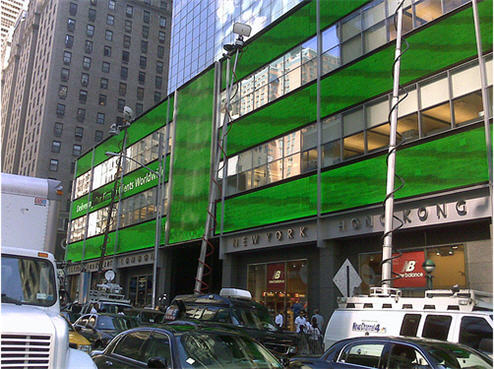
The 10 Biggest Chapter 11 Bankruptcies In US History
CNBC has put together a quick slideshow list of the top 10 largest Chapter 11 bankruptcy filings in US history based on the pre-bankruptcy assets of the companies in question. It really gives you a sense of the incredible scale of the Lehman Brothers filing — the next closest bankruptcy was Worldcom, which had $103.9 billion in assets before the filing — 535.1 BILLION DOLLARS less than Lehman Brothers. Damn.

Signs Of The Apocalypse: Even Money Market Funds Are Losing Money
In the history of money market funds, says the NYT, only one had ever “broken the buck” or actually lost money… before yesterday. On Tuesday, the managers of a multi-billion dollar money market fund announced that their customers might lose money in the fund– a type of investment that is considered as safe as a savings account.

Is This Woman The Smoking Gun Of The Mortgage Meltdown?
Meet Tracy Warren. NPR says she’s not surprised by the mortgage meltdown because she was supposed to be in charge of preventing it. Tracy worked for a quality control contractor that reviewed subprime loans for investment banks before they were sold on Wall Street, and her company’s biggest client was none other than Bear Stearns. Tracy says she found plenty of loans to reject. The trouble is, according to Tracy, after she rejected them… her bosses unrejected them.

Enron Class-Action Suit Killed By Supreme Court
Today the U.S. Supreme Court effectively killed off any chance of a $40 billion class-action lawsuit against the investment firms that did business with Enron. The suit charged that the Wall Street firms were complicit in Enron’s massive corporate fraud fiasco. The Supreme Court, however, just ruled on a similar case last week and found that “third parties – vendors, contractors and consultants such as banks, accountants or attorneys – can’t be sued over corporate fraud unless investors relied on them when making their investing decisions.”

Coming Soon: Starbucks TV Commercials To Address Falling Traffic
For the first time ever—and spurred largely by two price increases in a year—customer traffic at Starbucks dropped last quarter. The coffee chain still reported earnings based largely on higher prices and new stores, but it’s worried enough about the falling traffic to launch a national television ad campaign this season, something it’s never done before.
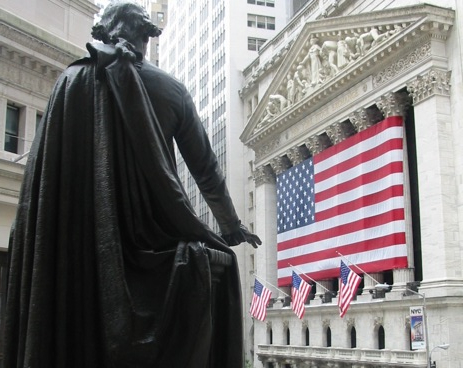
Is Wall Street Killing America?
Wall Street’s relentless drive for short-term profit is ruining corporate America and the consumer experience, according to John Bogle, founder of the Vanguard Group. The overseer of one of the world’s largest mutual funds appeared on Bill Moyers Journal to discuss a New York Times investigation that revealed substandard care at nursing homes owned by investment firms. According to Bogle, the trend is not contained, and has dire long-term consequences:
The financial sector of our economy is the largest profit-making sector in America. Our financial services companies make more money than our energy companies — no mean profitable business in this day and age. Plus, our healthcare companies. They make almost twice as much as our technology companies, twice as much as our manufacturing companies. We’ve become a financial economy which has overwhelmed the productive economy to the detriment of investors and the detriment ultimately of our society.


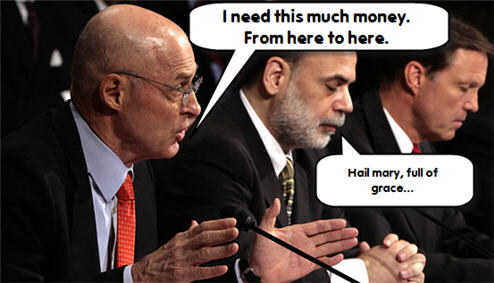
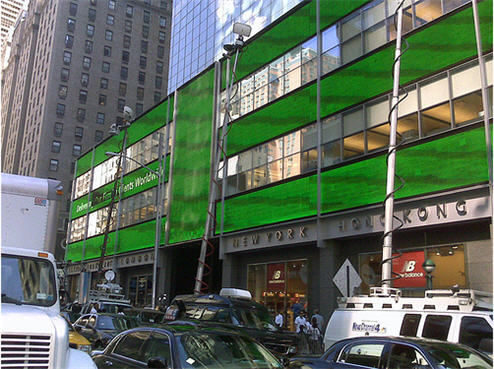

But How How Does The Bailout Affect Me?